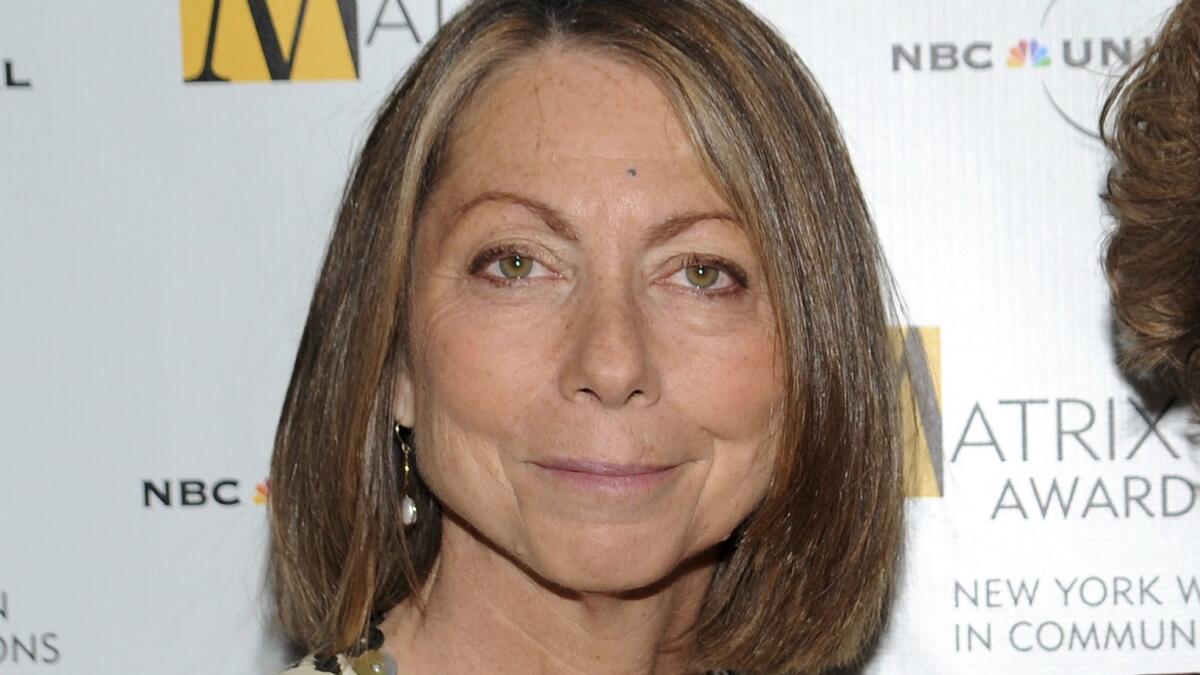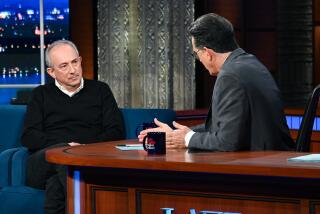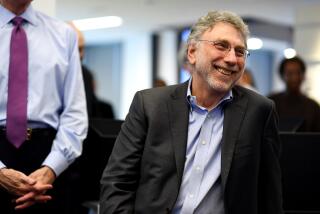Jill Abramson admits she ‘fell short’ in crediting sources in her book, ‘Merchants of Truth’

- Share via
Jill Abramson, the former New York Times executive editor accused of plagiarizing others’ work in her new book, “Merchants of Truth: The Business of News and the Fight for the Facts,” has admitted that she “fell short” in crediting sources.
Abramson acknowledged the mistakes in an interview with NPR’s “All Things Considered” host Michel Martin on Thursday.
“Accuracy and devotion to the truth are so important to me,” Abramson said. “And I take all of these allegations of inaccuracy and plagiarism very seriously. When I found the allegations have merit, I moved very quickly to correct everything.”
The controversy over “Merchants of Truth” centered around a Twitter thread posted by Michael C. Moynihan, a national correspondent for Vice News, one of the media organizations profiled by Abramson in her book.
In the thread, Moynihan highlighted several passages from Abramson’s book that closely resembled text from sources including the Ryerson Review of Journalism, the New Yorker, Time Out magazine and a college student’s master’s thesis.
One passage from the book concerning ethics in journalism appeared to have been lifted from the Columbia Journalism Review.
“The book ends with a final wag of the finger, reminding me that my colleagues apparently don’t possess ‘the expertise to compete on the biggest news stories,’” Moynihan tweeted. “If Abramson is the arbiter of ethics & expertise, I think we’re doing just fine.”
Abramson told NPR that she planned to fix the issues “pronto.”
“In several of these cases, the language is too close for comfort and should have been specifically cited in the footnotes correctly ... or put in quotations in the book,” she said. “And what is the problem here is that though I did cite these publications and tried to credit everybody perfectly, you know, I fell short.”
Abramson’s publisher, Simon & Schuster, struck a defensive pose, saying in a statement that the book offered “an extraordinary degree of transparency toward its subjects; each of the four news organizations covered in the book was given ample time and opportunity to comment on the content, and where appropriate the author made changes and corrections.”
“If upon further examination changes or attributions are deemed necessary we stand ready to work with the author in making those revisions,” the publisher said.
The publisher’s statement didn’t impress Moynihan, who tweeted, “Simon and Schuster stupidly paid a million dollars for this disastrous book. If these obvious examples of plagiarism aren’t enough and they require more examples of egregious mistakes and secondary source...ummm...cribbing, I’ll happily provide them.”
Abramson told the Washington Post that she was “up all night going through my book because I take these claims of plagiarism so seriously.”
“The book is over 500 pages,” she said. “All of the ideas in the book are original, all the opinions are mine. The passages in question involve facts that should have been perfectly cited in my footnotes and weren’t.”
More to Read
Sign up for our Book Club newsletter
Get the latest news, events and more from the Los Angeles Times Book Club, and help us get L.A. reading and talking.
You may occasionally receive promotional content from the Los Angeles Times.










